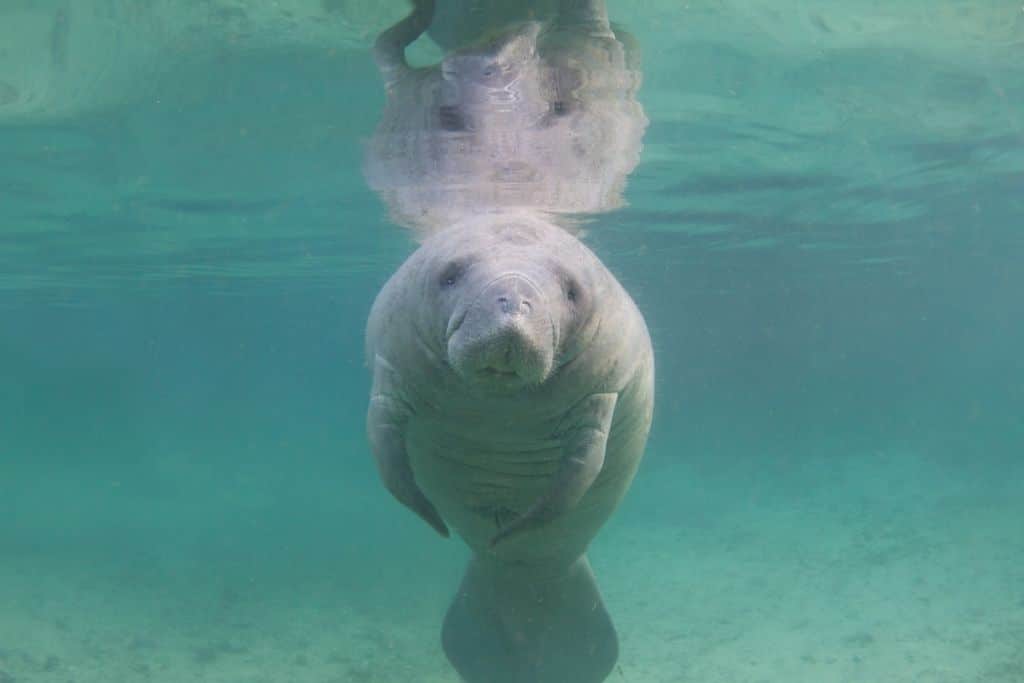The federal government has approved a trial feeding period this winter to help save the Florida manatee from starvation caused by manmade pollution.
—
What is Happening?
- Conservation experts have a plan to feed manatees in Florida this winter in bid to save the species from starvation caused by manmade pollution.
- The federal government has authorised this unprecedented conservation move due to the dire situation for the species.
The starving Florida manatee might be given a lifeline as officials move forward with an unprecedented plan to hand feed the species following the death of more than 1,000 individuals caused from manmade pollution.
While it is illegal for the public to feed wild animals, including manatees, as it is important to leave them to their own foraging and hunting and not be dependent on humans for food, the situation has become so dire for manatees in Florida that the federal government has given the plan the go-ahead.
“It’s the entire ecosystem that is affected by this and will be affected for a decade to come,” said Save The Manatee Club Executive Director Patrick Rose in an interview on Tuesday. “This is a necessary stopgap measure. It is a problem created by man and man is going to have to solve it.”
The Florida manatee has shown signs of population recovery, allowing the animal to be de-listed as an endangered species in 2017 and re-categorised as “threatened”. However in 2021, at least 1,017 manatees have been found dead. This spike in mortality has been caused by persistent water pollution and sewage from industry and real estate development, promoting a surge in blue-green algae that killed off seagrass beds, the main food source for manatees.
The deaths have been most acute in the Indian River Lagoon, a 251-km long estuary that serves as a seasonal habitat for thousands of manatees. The marine mammal often seeks shelter in the warm discharge of coastal power plants in the area, where more than 90% of the seagrass there has died from pollution.
The US Fish and Wildlife Service and state environmental officials have plans to begin a trial feeding on a private property, offering them romaine lettuce and cabbage, foods that are usually fed to manatees in captivity.
“The idea behind this experimental supplemental feeding … is that you can give them just enough more food that they can get them through this winter time,” said Rose. “The longer this is delayed, the less likely it can be successful.”
Manatees migrate north for food but typically return to Florida’s warm waters during winter months. Due to manmade pollution and limited seagrass to feed from, more manatees will likely starve this winter or be unable to overcome the cold from the loss of body weight.
You might also like: Amid Human-Induced Climate Change, the Florida Manatee Faces an Uncertain Future


















